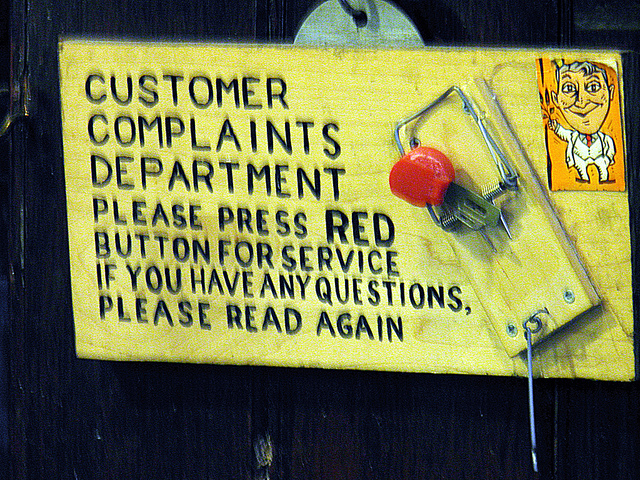Service Without Service

Not too long ago I heard an interview with Bill Price, co-author of The Best Service is No Service. The basic thesis of the book is that as a business / church / whatever-we-are, we should design such an experience that customer service is really unnecessary. Think about it: the reason for most businesses’ customer service department is that most businesses stink it up to begin with, and every business needs to factor in a do-over. Never once have I called up the people who make my peanut butter just to say, “Hey, you guys rock! Great job on this jar of chunky I just bought. It sticks to the roof of my mouth just like I dreamed it would!”
No, I’m more likely to call and say, “Hey, peanut people. Your jar of death had salmonella in it, and I threw up for three days until I’m pretty sure I inverted my toes.” (That’s a made-up scenario. Please…no get well cards.)
The bottom line: you call customer service when there is a problem, and Price’s very sensible idea is, don’t be a horrible company to begin with, and then you virtually eliminate the need for customer service.
Obviously, we can’t carry this idea too far for our churches. After all, our First Impressions Team at the Summit exists to engage worshippers and build meaningful relationships. We don’t want to work ourselves out of a job, but we do want to deliver the kind of service that virtually eliminates the need for damage control.
How does that happen? Well, you anticipate what they need. Think about it: our first-time guests have no idea where they should park, where their kids go, or how they take their next step. And I’ve found the majority of those guests don’t even know to ask the question. That’s why it’s our job to be the architects of an environment where questions are anticipated and answered before a guest experiences a disconnect. You do this the best by always looking at the Sunday experience through the eyes of a guest. What are they seeing? What are they feeling? What is scaring them? What would reassure them?
When we serve well, there’s rarely a need for a do-over.

I like the thought of “anticipating the need” – this is what I would like to get better at and instill in my teams.